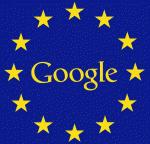
The European antitrust investigation of Google, originally filed November 2010, looks like it might be entering the next stage of its development.
The European Consumer Organisation (BEUC), a consumer-rights group that represents 42 regional groups in 31 countries, says that it expects the Competition Commission to release its findings “within days” and possibly by the end of this week.
For anyone watching how these antitrust cases develop and get decided, if we do see a decision within days, that is a big deal.
That’s because there is something deeply frustrating about regulatory investigations. Created to help right the wrongs of big companies impacting smaller ones and consumers, decisions can take years to emerge while business continues as usual.
Today’s Google news comes after BEUC this week released a letter it had sent to the investigators earlier in the month, outlining why it believes Google is behaving in a non-competitive way that affects competitors and consumers.
That letter, sent by BEUC director general Monique Goyens, focuses on how Google has used its role as “gatekeeper to the internet” to “restrict access to its competitors and direct traffic to its own services.”
“Google regularly places its own services at or near the top of Google’s search results and diverts traffic from its competitors to its own services,” Goyens writes. Within search, BEUC points out that it provides specific results that also drive traffic to its other services covering areas like maps, video and books (Google Maps, YouTube and Google Books, respectively). It doesn’t mention advertising, although ultimately that is the glue that connects Google’s business, and is another area where the company has created a strong position as a result of its position in search.
“We are seriously concerned that if these allegations are substantiated by the Commission’s analysis and investigation, consumers have suffered harm from Google’s dominance by being provided with partial results of their search queries and thus being deprived of the possibility to make informed choices,” she writes.
BEUC advocates unspecified penalities against the company if that is the case: “It is important that the European Commission exercises its powers to sanction dominant companies who abuse their position to the detriment of consumer welfare.”
A spokesperson for BEUC says that the next step for the commission is to publish a “Statement of Objections” that will list potential infringements of EU Competition law by Google. Google will then have a chance to respond to any allegations before the next step — penalties — if it has been found to be in breach of competition laws. “We expect the European Commission to take its next steps in the coming days,” the spokesperson said, “but cannot give 100% confirmation it will be this week.”
The statement comes after the New York Times published a story quoting European parliament member Andreas Schwab saying he thought the antitrust commissioner, Joaquín Almunia, was working as quickly as possible.
The European antitrust case against Microsoft and bundling of services like Internet Explorer, for example, took 10 years to go from complaint to $2 billion penalty. That was in 2008 — arguably at a time when Microsoft’s domination was already starting to erode anyway.
Ironically, one of the companies now pursuing the antitrust complaint against Google is Microsoft. The company is part of a group called FairSearch, launched around the time of the complaint, and also includes a number of travel sites, such as Expedia, Travelocity and Kayak.
The Competition Commission will be weighing up whether Google’s search dominance is enough to stifle competition for others, but just taking its position in search on its own, the leadership Google has is hard to ignore. Here’s the lay of the land in the last three months on PC search and mobile search. Currently, Google respectively has 91 percent and 97 percent of the search market:



